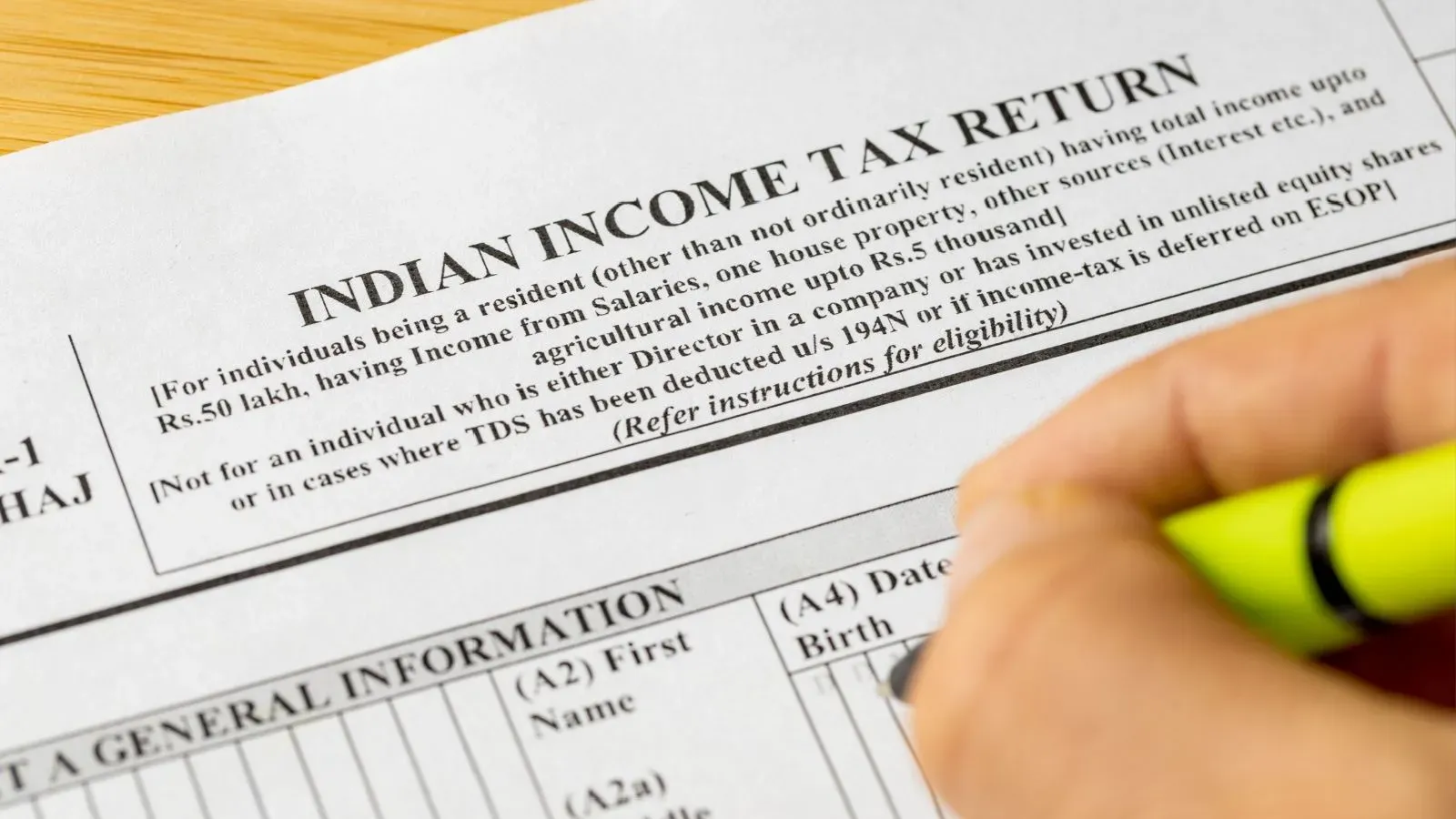Personal Finance News
21 reasons you shouldn't file ITR-1 (Sahaj) form in 2025. Do you know any?
.png)
4 min read | Updated on August 25, 2025, 09:30 IST
SUMMARY
ITR Filing 2025: There are multiple situations in which you cannot file this ITR-1 form, which is also known as 'Sahaj'. Ahead of the Income Tax return due date, this article looks at the reasons for which you should not file ITR-1 (Sahaj)

Here are the reasons/situations where ITR-1 is not required. | Image source: Shutterstock
Filing Income Tax Return Form 1, or ITR-1, is required if your total income is below ₹50 lakh and your money comes mostly from salary, pension, bank interest, one-house property, or equity LTCG up to ₹1.25 lakh.
When you cannot file ITR-1
You cannot file ITR-1 in the following situations or reasons:
- If you are a Resident Not Ordinarily Resident (RNOR), and Non-Resident Indian (NRI).
- If your total income is above ₹ 50 lakh
- If you have an agricultural income exceeding ₹ 5,000
- If you have an income from lotteries, racehorses, etc.
- If you have a taxable short-term capital gain
- If you have long-term capital gains taxable under section 112
- If your long-term capital gains under section 112A are over ₹1.25 lakh.
- If you have held any unlisted equity shares at any time during the previous year.
- If you have income from a business or profession.
- If you are a Director in a company
- If you have a tax deduction under section 194N of the Income-tax Act, 1961
- If you have deferred income tax on ESOP received from the employer being an eligible start-up
- If you own and have income from more than one house property
- If you have income taxable at special rates under section 115BBDA and 115BBE
- If you have income to be apportioned in accordance with the provisions of section 5A.
- If you have assets (including financial interest in any entity) located outside India
- If you are a signing authority on any account located outside India
- If you have income from any source outside India
- If you have claimed a deduction under section 57, other than a deduction in respect of family pension.
- If you have claimed relief under section 90 or 90A or deduction of tax under section 91.
- If you are assessable for the whole or any part of the income on which tax has been deducted at source in the hands of a person other than the assessee.
Who should file ITR-1?
Now that you know the reasons/situations for which ITR-1 should not be filed, let's have a look at the reasons for which you should file ITR.
A resident individual having a total income not exceeding ₹50 lakh should file ITR-1. The total income should include income from the following sources:
- Salary or family pension,
- Income from house property, where the individual does not own more than one house property. Also, the ITR-1 filer should not have any brought forward loss or loss to be carried forward under this head
- Income from other sources, except winnings from the lottery or income from race horses. Also, he should not have any loss under this head*.
- agricultural income up to ₹5,000
- Long-term capital gain u/s 112A up to ₹1.25 lakh. No brought forward loss or loss to be carried forward under the head.
Further, the income of a spouse (other than those covered under the Portuguese Civil Code) or minor clubbed should include only income from sources and the limits specified above.
*Please note that for filing ITR 1, income from other sources can comprise interest from savings accounts, interest from deposits (Bank / Post Office /Cooperative Society), interest from income-tax refund, interest received on enhanced compensation, and any other Interest Income
The due date to file ITR for AY 2025-26 is September 15, 2025 for non-audit cases.
Related News
By signing up you agree to Upstox’s Terms & Conditions
About The Author
Next Story



